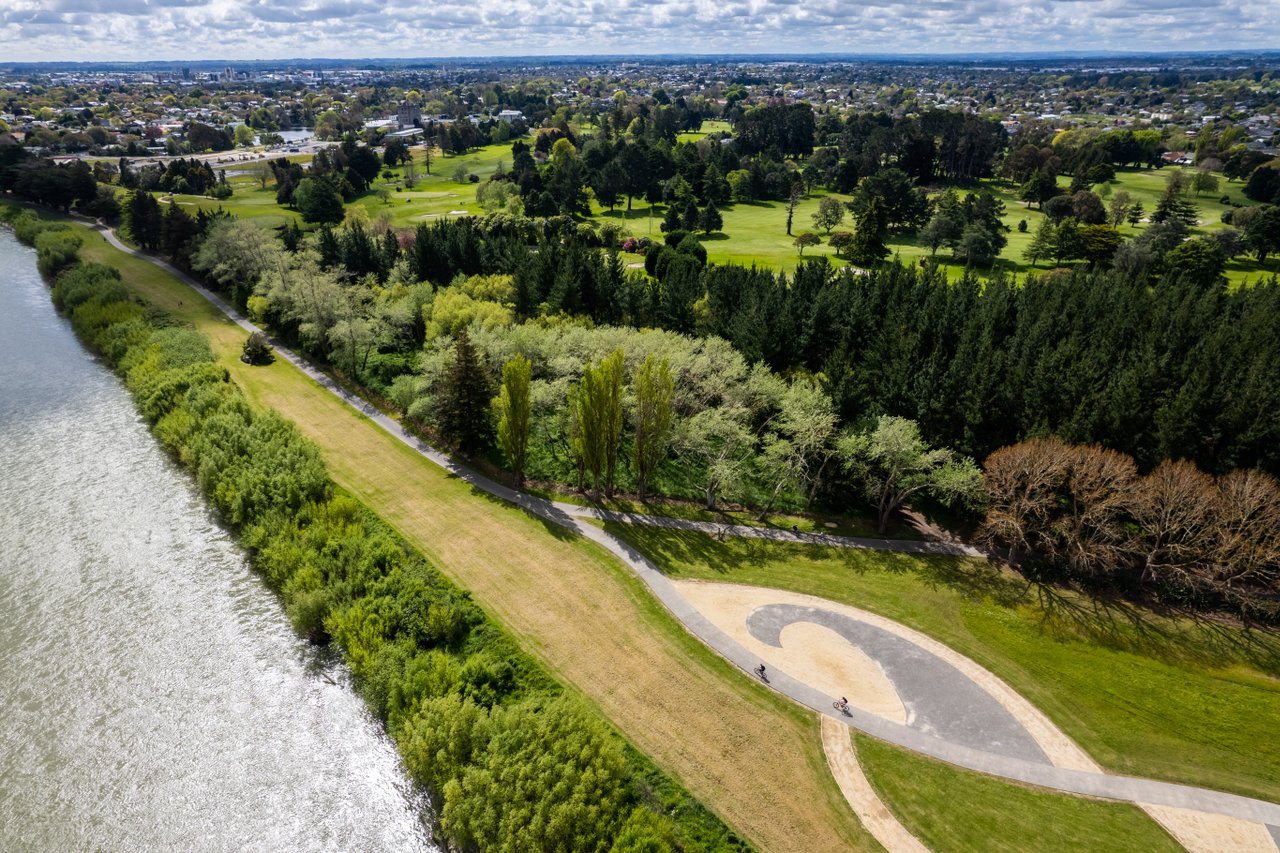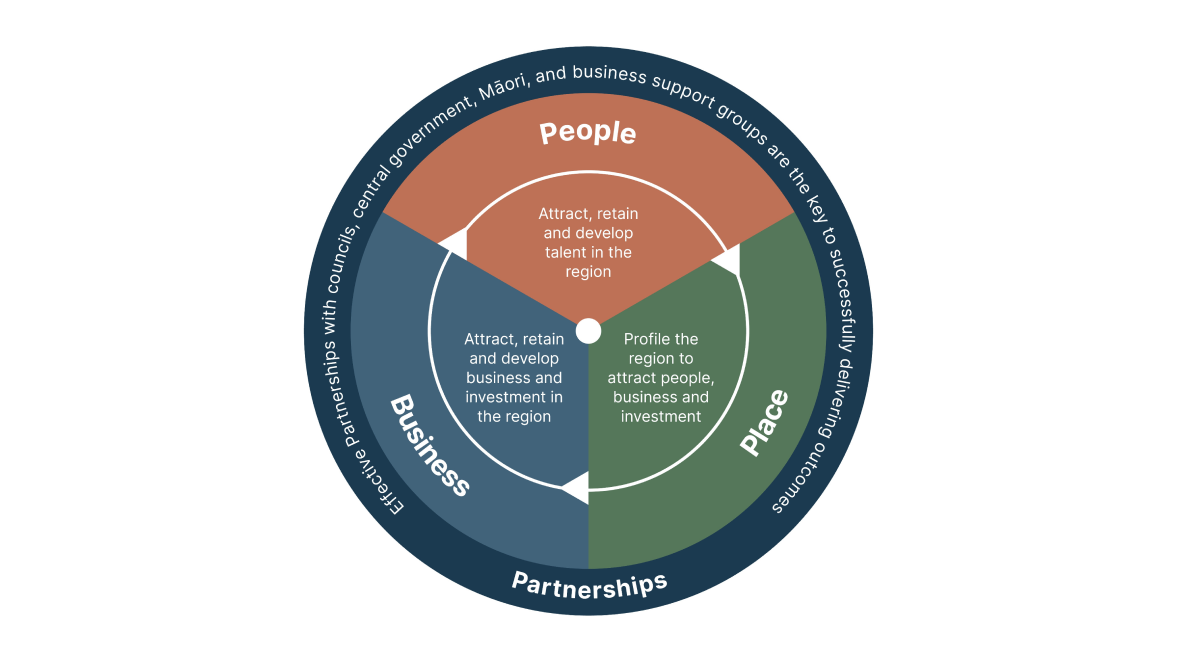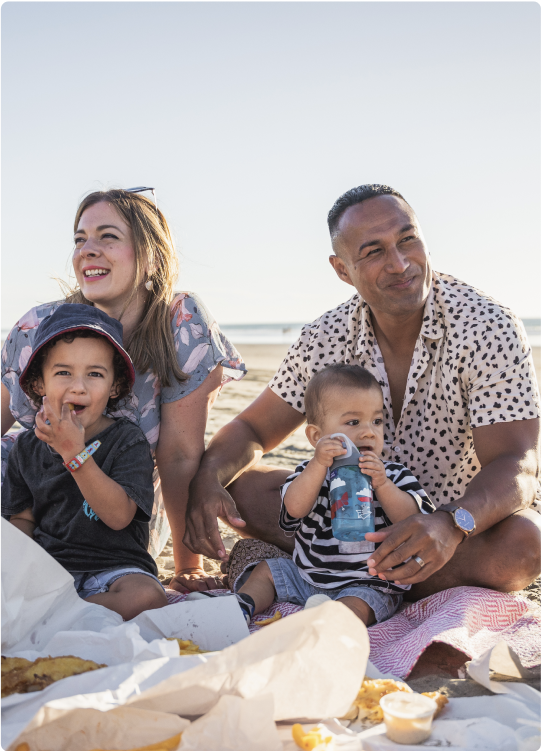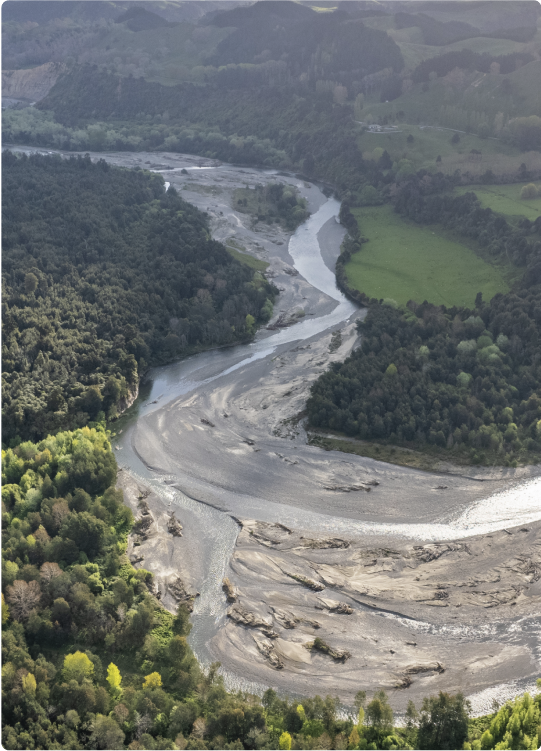
Manawatū 2030: Ko te rohe tino ahu whakamua o Aotearoa.
New Zealand’s most progressive region.


Statement of Intent Outcomes
Attract, retain and develop business and investment in the region.
Strategies/Programmes
Destination Management Plan, Business Expansion and Retention Strategy, Regional Business Partner Programme, business startup and innovation, inward investment strategy, Te Utanganui - Central New Zealand Distribution Hub Strategy, Manawatū Food Strategy.
Projects/Activities
Develop visitor sector capability, grow media and tourism trade engagement, Rangitāne o Manawatū Māori Tourism Action Plan, support business expansion and retention in the region, support inward investment opportunities, Visitor Sector capability development.
Statement of Intent Outcomes
Attract, retain and develop talent in the region.
Strategies/Programmes
Talent & Skills attraction and retention strategy,
Te Aho Tāmaka strategy.
Projects/Activities
Pathways to employment and career development programme, leader attraction, leader engagements, facilitation of leaders aligning support to regional projects.


Statement of Intent Outcomes
Profile the region to attract people,
business and investment.
Strategies/Programmes
Regional Identity and Media Features - Lead and develop the stories of Manawatū, creating a unified narrative and positioning that incorporates the cultural heritage of iwi.
Projects/Activities
Grow engagement and awareness of the region on online channels, ManawatuNZ.co.nz and social media.
Statement of Intent Outcomes
Lead inclusive and sustainable economic development for the region.
Projects/Activities
Partnership agreements with key partners and iwi, outcomes aligned with partnerships and funding agreements, iwi lead projects, Rangitāne o Manawatū Māori Tourism. Strategy, research, data and insights, economic updates, stakeholder and business community e-newsletters, reporting and legislative requirements.
We recognise the principles of Te Tiriti o Waitangi and acknowledge the importance of partnering with local iwi and recognition of Tangata Whenua in the region through localised partnering.
Our focus will continue to be on Participation through our growing relationships with regional iwi and mana whenua across Palmerston North and Manawatū. Through Partnerships, we aim to work together with our regional iwi for agreed outcomes that benefit the region, and we will ensure Protection is a priority focus by incorporating te reo and tikanga across our projects and programmes, and continued development of the team’s cultural awareness and, knowledge and understanding, of the principals of Te Tiriti.
CEDA works with businesses through its regular business engagements to encourage considerations around carbon emission reduction and sustainability options for their operations and through the development of our online sustainability toolkit, and advocating for the Tiaki Promise.
Within the CEDA team, we are committed to sustainable practices in both our office environment and the environment within which we work and live, from our procurement and purchasing through to our everyday recycling approach.
The Sustainable Development Goals or Global Goals are a collection of 17 interlinked global goals designed to be a “blueprint to achieve a better and more sustainable future for all”. The Goals were set in 2015 by the United Nations who defines sustainable development as “meeting the needs of the present without compromising the ability of future generations to meet their own needs.” The intention is for these goals to be achieved by 2030.
While CEDA is committed to all of the 17 SDG’s, we have focused on our top three Sustainable Development Goals which we use to inform our programmes of work are: Quality Education, Decent Work and Economic Growth, and Responsible Consumption and Production.
CEDA engages regularly with the local business community to encourage considerations around carbon emission reduction and sustainability options for their operations. Via our national and international investment opportunities in the region, we consider the environmental impacts of any businesses looking to relocate here. CEDA are advocates for sustainability through our social media and digital communications to ensure we are doing what we can through procurement and waste reduction initiatives to support this critical work.
Here’s how CEDA’s structure differs to other economic development agencies around New Zealand and Why we were established.
How we differ from other economic development agencies:
There are 14 regional development agencies around the country and up to 50 economic development agencies. There are also 30 regional tourism agencies, more than half of which are integrated into a regional or economic development agency. All these agencies come in many different sizes and shapes, with diverse budgets and governance arrangements. Staffing within these agencies can range from one or two people to in excess of 250 and budgets from $1 million up to $90 million.
Why was CEDA established?
CEDA was established in 2016 to achieve the objectives set out by the shareholders, Palmerston North City Council and Manawatū District Council. Together, we drive and facilitate the creation and sustainable growth of economic wealth in Manawatū and beyond, providing an integrated approach to economic development across the city and district.
A council-controlled organisation (CCO) is established to manage council facilities independently and can provide business and community expertise that councils may not otherwise have easy access to.
A CCO, like CEDA, can also attract funding from sources other than rates.
CEDA’s Frequently Asked Questions (FAQs)